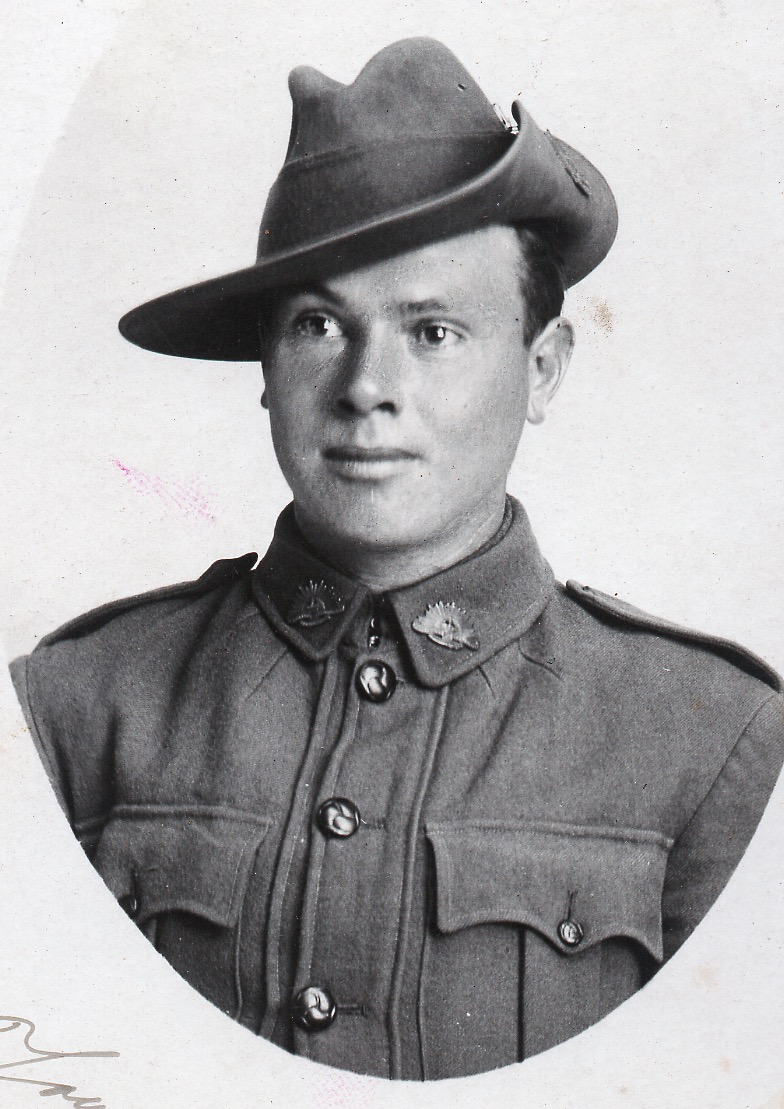Pte
Percy Allan Clark
Information about birth
|
Year of birth: 1894 |
|
Place of birth: Broken Hill, New South Wales, Australia |
General information
|
Profession: Fireman (steam engine) |
Army information
|
Country: Australia |
|
Force: Australian Imperial Force |
|
Rank: Private |
|
Service number: 416 |
|
Enlistment date: 10/09/1914 |
|
Enlistment place: Helena Valley, Western Australia, Australia |
|
Units: — Australian Infantry, 11th Bn. (Last known unit) |
Information about death
|
Date of death: 30/10/1917 |
|
Place of death: Hamburg, Passendale, Belgium |
|
Cause of death: Killed in action (K.I.A.) |
|
Age: 23 |
Cemetery
|
Tyne Cot Cemetery Plot: XXXI Row: C Grave: 11 |
Distinctions and medals 2
|
British War Medal Medal |
|
Victory Medal Medal |
Points of interest 3
| #1 | Place of birth | ||
| #2 | Enlistment place | ||
| #3 | Place of death (approximate) |
My story
Pte Percy Allan Clark, a 23-year old former railway fireman born in Broken Hill NSW, raised in Western Australia was one of the first men to enlist on 10 September 1914. He was part of ‘D’ Company, 11th Battalion Australian Infantry (3rd Australian Brigade, 1st Australian Division). Before coming to Flanders in 1917 he saw action in Gallipoli in 1915 and the Somme in 1916, where he was wounded. He was taken back to Woodcote Park Military Convalescent Hospital. Percy recovered from his wounds and rejoined his unit in October 1917 in Flanders during the Battle of Passchendaele.
In the morning of 30 October the battalion moved out from the Menin Gate and marched to the frontline near Westhoek. The 1st Australian Division were to take over the line near Decline Copse and protect the right flank of the 4th Canadian Division, which was to attack Passchendaele. The 11th Bn. A.I.F. were to relieve the 7th Bn. A.I.F. on Westhoek Ridge at 9 AM, headquarters at J.3.a.15.35, south of Chateau Wood and the Menin Road. From there the battalion had to relieve the 6th Bn. A.I.F. in the line at 4 PM, headquarters at D.16.d.8.1 near Daring Crossing. There were three casualties reported during the relief, Pte. Clark being one of them. According to the Red Cross Wounded and Missing File, Percy was killed by a shell and buried where he fell in a marked grave. After the war his remains were found south of Hamburg Farm (D.16.b.40.40) and he was reburied at Tyne Cot Cemetery, where he is still remembered today.
In the morning of 30 October the battalion moved out from the Menin Gate and marched to the frontline near Westhoek. The 1st Australian Division were to take over the line near Decline Copse and protect the right flank of the 4th Canadian Division, which was to attack Passchendaele. The 11th Bn. A.I.F. were to relieve the 7th Bn. A.I.F. on Westhoek Ridge at 9 AM, headquarters at J.3.a.15.35, south of Chateau Wood and the Menin Road. From there the battalion had to relieve the 6th Bn. A.I.F. in the line at 4 PM, headquarters at D.16.d.8.1 near Daring Crossing. There were three casualties reported during the relief, Pte. Clark being one of them. According to the Red Cross Wounded and Missing File, Percy was killed by a shell and buried where he fell in a marked grave. After the war his remains were found south of Hamburg Farm (D.16.b.40.40) and he was reburied at Tyne Cot Cemetery, where he is still remembered today.
Sources 6
|
AIF Project https://www.aif.adfa.edu.au/showPerson?pid=53582 Sources used |
|
Belford W.C., "Legs-eleven" : Being the story of the 11th Battalion (A.I.F.) in the Great War of 1914-1918, Perth: Imperial printing Company limited, 1940, pp. 504-507 Sources used |
|
CWGC https://www.cwgc.org/find-records/find-war-dead/casualty-details/462278/percy-clark/ Sources used |
|
Service Record https://recordsearch.naa.gov.au/SearchNRetrieve/Interface/DetailsReports/ItemDetail.aspx?Barcode=1967598&isAv=N Sources used |
|
The Australian War Memorial https://www.awm.gov.au/advanced-search/people?people_preferred_name=clark&people_service_number=416&people_unit=&facet_related_conflict_sort=8%3AFirst%20World%20War%2C%201914-1918 Sources used |
|
War Diary 11th Bn. Australian Infantry, October 1917 https://www.awm.gov.au/collection/C1341902 Sources used |
